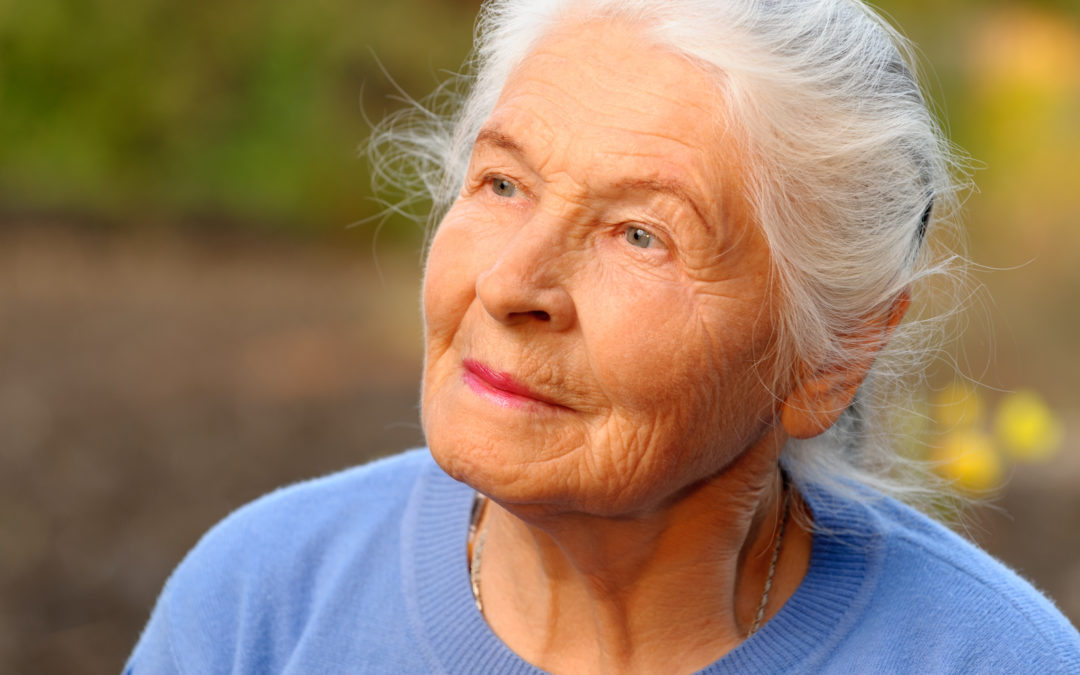No one wants to face the fact that a parent is aging – that their once strong father now has trouble walking across the living room or their culinary-skilled mother can no longer remember how to operate a stove.
As hard as it may be to admit, loved ones do not remain young and strong forever.
To avoid an injury, it’s important to watch for signs that a loved one may be having trouble living alone.
1) New medical issues or worsening symptoms for an existing illness
Frequent medical problems tend to go hand in hand with the aging process. You may notice that your loved one
- has difficulty recovering from minor illnesses, like colds
- loses or gains a noticeable amount of weight in a short period of time
- has unexplained bruises
- appears frail or weak
- forgets to take his or her medications as prescribed
- has a low energy level
- experiences changes in his or her normal temperament or mood
- cannot get into or out of a chair easily
- lacks coordination or proper balance when walking
Many of these symptoms could be signs of a treatable medical condition, so we recommend your loved one see a healthcare provider. You should also ensure your loved one has a way to get help quickly in a medical emergency, such as having a caregiver stay with him or her, purchasing a medical alert button or considering assisted living, where nursing staff is always nearby.
2) Lack of home maintenance
A low energy level and/or forgetfulness can make it impossible for your loved one to keep his or her home spick-and-span. Signs that your loved one’s housekeeping ability is declining include
- mail, magazines and other clutter throughout the home
- expired food in cabinets and the refrigerator
- broken appliances, such as a microwave, toaster, washer or dryer
- charred stove knobs or other signs of fire in the kitchen
- dead plants
- dust, cobwebs and mold
- spills that haven’t been cleaned
- tall grass, discolored siding and uncleaned gutters on the home’s exterior
- newspapers laying in the yard
An unkempt home may indicate your loved one simply cannot keep up with daily household chores. Even worse, consuming expired food or accidentally leaving the stove on could cause them harm.
You may offer to help your loved one with housekeeping tasks or enlist the help of a cleaning service. You could also bring up the idea of moving to an assisted living community, where daily housekeeping is provided.
3) Disheveled appearance or poor hygiene
Like housekeeping, tasks related to personal hygiene, such as flossing or shaving, can take a lot of energy to accomplish. As these become more difficult, you may notice your loved one’s appearance changing. Common warning signs include
- strange body odor
- dirty or stained clothing
- missing buttons or incorrectly buttoned clothing
- unkempt hair or beard
- bad breath
These signs are particularly telling if your loved one is generally picky about his or her appearance. Certain symptoms, such as body odor or bad breath, could stem from an underlying medical problem, so it is a good idea to consult a healthcare professional.
4) Decreased interest in favorite hobbies and activities
Unfortunately, it is common for seniors who live alone to be bored or lonely. Being involved with community groups or getting together regularly with friends can help alleviate these feelings. However, your loved one may have difficulty driving or may not feel up to attending events, making socialization difficult. Be on the lookout if your loved one is
- no longer staying in contact with friends
- not attending events they used to enjoy, such as church services
- dropping out of a club or group they were actively involved in
- giving up a favorite hobby
- staying in the house for days at a time
- missing scheduled appointments
A lack of interest in things your loved one formerly cared about could be a sign of depression or loneliness. Check out five ways to help loved ones fight senior isolation to find techniques to help your loved one combat these issues.
5) Recent financial problems
Forgetting to pay a bill every once in a while is common. However, aging can make it difficult to keep track of spending, and you may notice your loved one is not staying on top of his or her finances. Some issues include
- frequently overdrawn accounts
- final notices from creditors
- unopened bills
- large donations to charities that your loved one cannot afford
- canceled insurance policies due to nonpayment
- utilities, such as electricity and gas, being shut off
- frequent calls from collectors
It may be that your loved one cannot remember when bills are due. The inability to handle finances could make your loved one vulnerable to scams that cause major financial issues. If possible, you may offer to help him or her manage their money, so bills are paid on time.
What to do next
If you suspect living alone is becoming difficult for your loved one, speak with his or her friends, neighbors or family members to see if they have noticed any issues. Confirmation of your suspicions can give you the courage to start a valuable conversation.
You should also set up an appointment with a healthcare professional to discuss what you have noticed and get a feel for your loved one’s overall health. A doctor can give you advice about what to do next. You could also contact a social worker or other senior care expert to get a second opinion about whether your loved one needs extra help and what your options are.
If your loved one is having trouble living alone, moving to an assisted living community could be a viable option. Assisted living provides housekeeping services, meals, medical care, help with activities of daily living, opportunities for socialization and more to help your loved one thrive.
The Villas of Jackson, an assisted living community in Jackson, Missouri, offers seniors throughout the region the amenities and services they need to enjoy a true retirement lifestyle. With a support system designed to empower seniors, your loved one will not have to worry about daily chores or what could happen in an emergency. To see what a difference The Villas of Jackson can make, we invite you to schedule a visit to our community.


Recent Comments